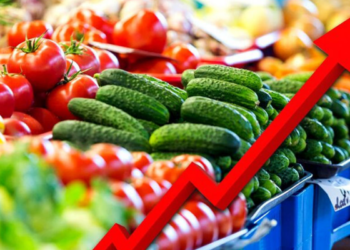In January, the United Kingdom’s inflation rate remained unchanged at 4% year-on-year, buoyed by decreasing prices for furniture and household goods, as well as food and non-alcoholic beverages. However, on a month-on-month basis, the headline consumer price index (CPI) experienced a decline of -0.6%, returning to negative territory after December’s unexpected increase.
Economists had anticipated a slightly higher inflation rate of 4.2% year-on-year and a smaller decline of -0.3% for the month, according to a Reuters poll. The Office for National Statistics (ONS) reported that housing and household services, particularly higher gas and electricity charges, contributed to the monthly increase in CPI rates, while furniture and household goods, along with food and non-alcoholic beverages, made the largest downward contributions.
The core CPI, which excludes volatile items such as food, energy, alcohol, and tobacco, registered an annual rate of 5.1%, slightly below the consensus estimate of 5.2%. On a monthly basis, core CPI declined to -0.9%, surpassing the forecast of -0.8%.
Despite the persistent inflationary pressures in the services industry, UK Finance Minister Jeremy Hunt expressed optimism, stating that the government’s plan is making significant progress in bringing down inflation from its peak of 11% and expects it to reach around 2% in the coming months.
While the CPI goods annual rate slowed to 1.8%, the CPI services annual rate rose to 6.5%, indicating ongoing price pressures in the services sector. Marion Amiot, senior European economist at S&P Global Ratings, attributed the sustained inflation to tight labor supply, which is supporting high wage growth and underlying inflationary pressures.
The UK has faced challenges in curbing inflation compared to its counterparts, but the CPI has been on a downward trend since its peak in October 2022. Despite rapid interest rate hikes from the Bank of England, the British economy has managed to avoid a recession. However, preliminary estimates suggest a slight technical recession in the fourth quarter.
Suren Thiru, economics director at ICAEW, sees the softer-than-expected inflation figures as a sign that the UK is nearing success in combating soaring inflation. He anticipates a significant decline in inflation by spring, driven by lower energy bills and food costs, although core and services inflation remain high. Thiru believes that weakening labor demand, slowing wage growth, and economic challenges will contribute to a gradual decline in inflation throughout the year.










